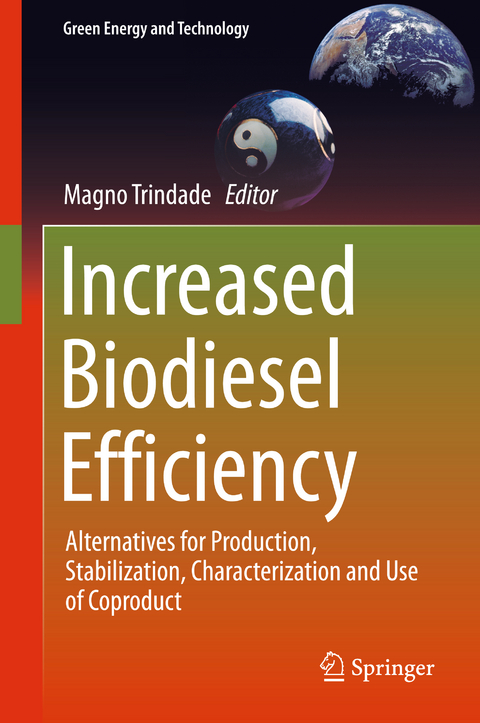
Increased Biodiesel Efficiency
Springer International Publishing (Verlag)
978-3-319-73551-1 (ISBN)
Beginning by addressing different protocols for synthesis based on fatty acids, methyl and ethyl esters, it then describes chemical analyses essential to establishing the purity of the biodiesel. It highlights in detail the use of multifunctional and synthetic antioxidants, and investigatesthe impact of synthetic chalcones and their derivatives on the oxidative stability of biodiesel.
The author goes on to explain how to ameliorate various influences - UV irradiation and metal contaminants for example - which increase the hazards of oxidation, such as degradation and instability. New pre-treatment procedures performed using ultrasonic energies, thermostatic bath and vortex stirring are not only more environmentally friendly, but cut down on the time-consuming process of determining metal content, and allow for the use of more environmentally friendly aqueous reagents. The book investigates and demonstrates these techniques on the basis of real-world results.
Further, it suggests the practical uses of byproducts of biodiesel production, for example, using glycerol as a source of energy and high valuable chemicals. These useful techniques aid any researcher exploring the production process of biodiesel and its stabilization and characteristics.
Prof. Dr. Magno Aparecido Gonçalves Trindade is a chemistry graduate (2002) and has a master's degree in chemistry (2005) from the Federal University of Mato Grosso do Sul (UFMS), and a Ph.D in analytical chemistry from the University of São Paulo State (UNESP, 2009). He was a postdoctoral fellow in analytical chemistry at the UNESP (2009-2010) and UFMS (2010) before joining the Federal University of Grande Dourados (2010) as an assistant teacher of analytical chemistry. His scientific interests include biodiesel, electrochemistry methods and sample preparation for biofuel and fuel application. The focus of his biofuel research is alternative multifunctional additives to improve the stability (more efficiently and more cost-effective) of biodiesel or its blends. He is currently investigating electrochemistry methods and sample preparation for biologic and environmental applications. He is the author and co-author of more than 40 articles, two books and three patents on these subjects.
Chapter I: Renewable energy sources: a sustainable strategy for biodiesel productions.- Chapter II: Synthesis of biodiesel via alternative protocols.- Chapter III: Various multi-functional additives for biodiesel stabilization: Perspectives for more cost-effective and efficiency.- Chapter IV: Hydroxychalcones: Synthetic antioxidants for improving stability of biodiesel.- Chapter V: Fluorescence spectroscopy as an alternative analytical tool for monitoring biodiesel oxidative stability.- Chapter VI: Recent advances on sample preparation procedures for elemental determination in biodiesel.- Chapter VII: Alternative uses for biodiesel byproduct: Glycerol as a source of energy and high-value chemicals.
| Erscheinungsdatum | 18.02.2018 |
|---|---|
| Reihe/Serie | Green Energy and Technology |
| Zusatzinfo | XII, 186 p. 64 illus., 36 illus. in color. |
| Verlagsort | Cham |
| Sprache | englisch |
| Maße | 155 x 235 mm |
| Gewicht | 460 g |
| Themenwelt | Technik ► Elektrotechnik / Energietechnik |
| Schlagworte | Alternative Additives • Alternative Feedstock • energy and technology • Industrial Pollution Prevention • renewable energy • Smart Use of Coproduct |
| ISBN-10 | 3-319-73551-9 / 3319735519 |
| ISBN-13 | 978-3-319-73551-1 / 9783319735511 |
| Zustand | Neuware |
| Informationen gemäß Produktsicherheitsverordnung (GPSR) | |
| Haben Sie eine Frage zum Produkt? |
aus dem Bereich


